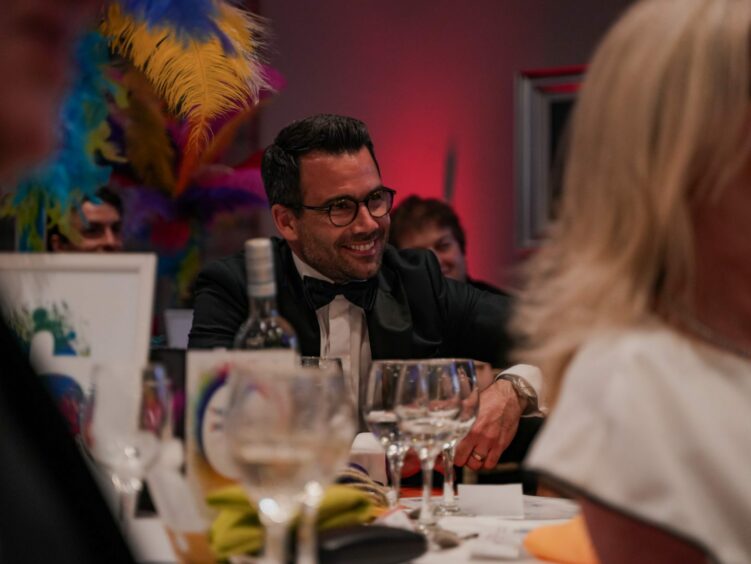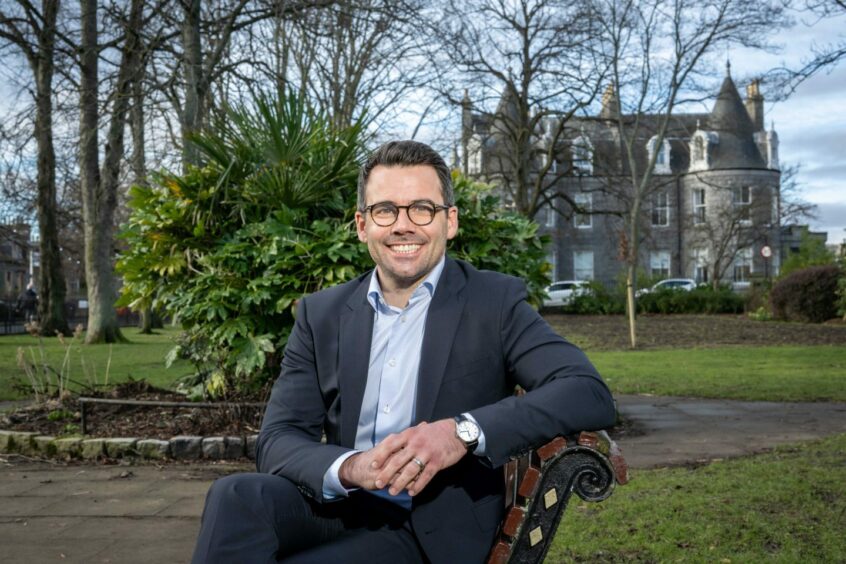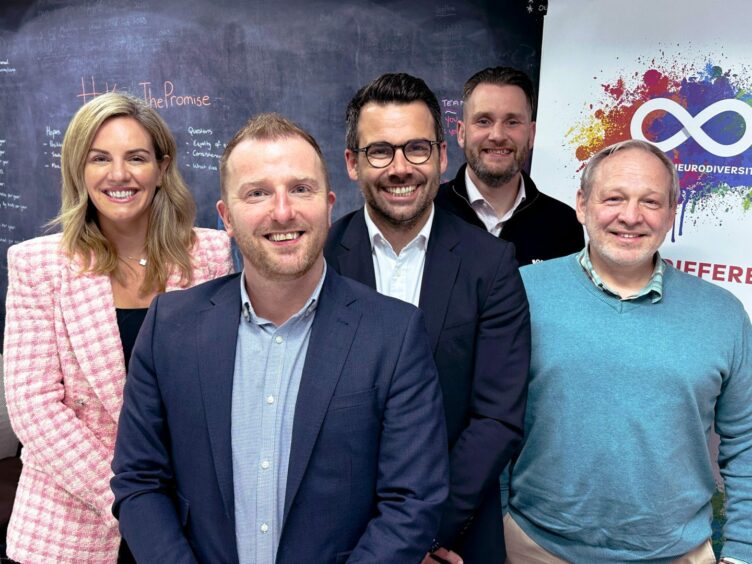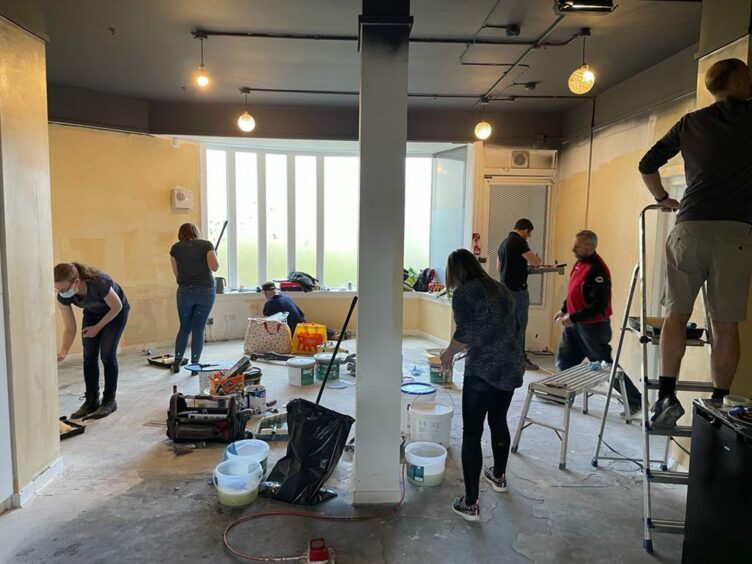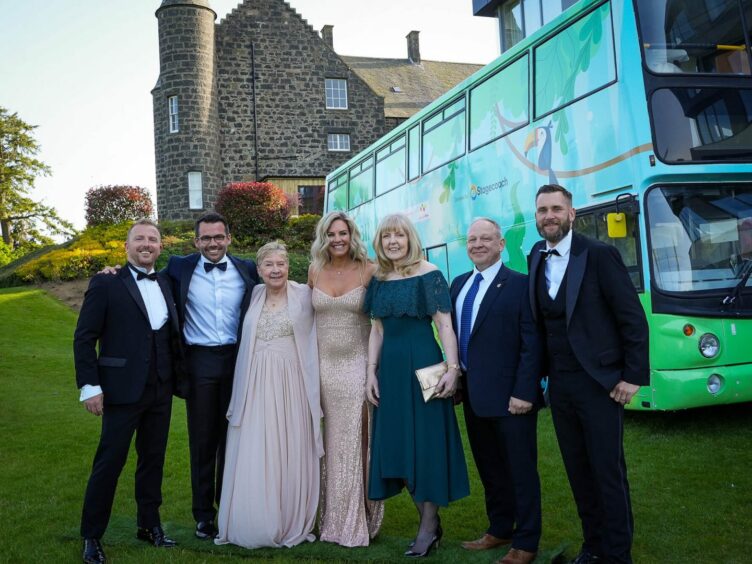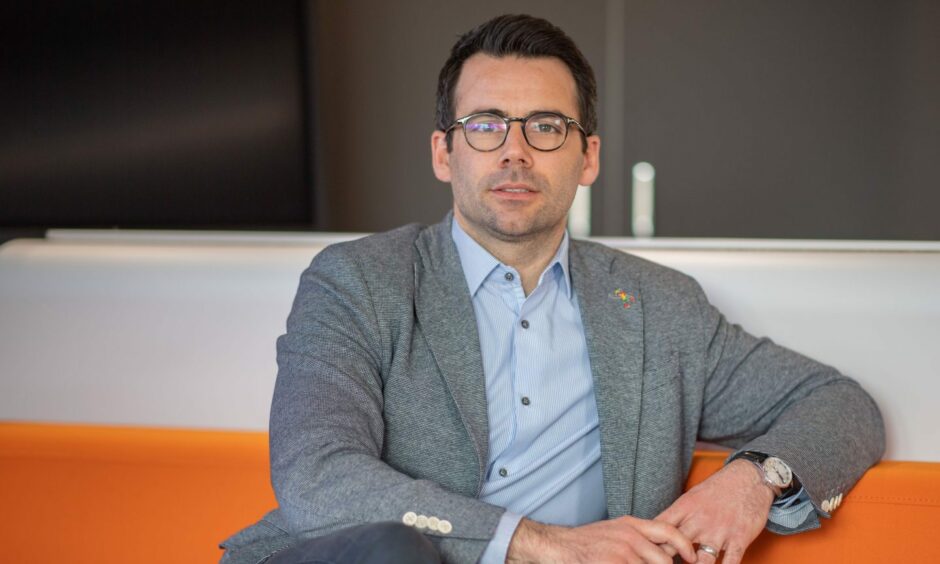
Now in its fourth decade, Autism & Neurodiversity North Scotland (A-ND) is the oldest support organisation for autistic and neurodiverse people in the north-east.
Founded in 1987 (as the Grampian Autistic Society) by a small group of parents and professionals who were concerned for the needs of local autistic people, it was the first such charity in the region.
It’s fair to say A-ND has come a long way in the 36 years since.
What started as a small support group helping a handful of families has grown into a staff of 50, providing direct, ongoing support to 150 individuals and their families throughout Aberdeen, Aberdeenshire, Moray and the Highlands. A-ND has headquarters in Aberdeen’s Carnie Drive, as well as offices in Elgin.
As the P&J’s recent autism investigation showed, more and more families are having to fight to get the support they need.
Having an autistic or neurodiverse family member can be hugely challenging, and getting the support and recognition these people deserve can feel like an uphill struggle.
Terry Allan – CEO of engineering firm Global E&C – recently took over as chairman of AN-D.
We sat down with him to discuss the challenges facing some of the north and north-east’s most vulnerable people. And why the work of A-ND is more crucial than ever.
Why did you decide to get involved with A-ND as chairman?
“I was on holiday with my family in the summer of 2021 when I read an article about Billy Alexander’s appointment as CEO of A-ND, then Grampian Autistic Society.
“I wanted to understand more about the vision for the charity and how it intended to build on the support offered to neurodiverse people, and their families, across the region.
“We have made positive progress in improving equality on crucially important areas. But we have some ground to make up when it comes to understanding hidden differences in the same way.
“We often avoid things we don’t understand, or that are not part of our ‘normal’.
“This partly relates to our unconscious bias and perhaps the stigma attached to neurodiversity and autism.
“Thankfully, that’s changing fast and A-ND has a big role to play in that within our region.
“When I met with Billy, it became evident that a major part of his strategy to build awareness was that they needed local businesses to get involved in a meaningful way.
“And so Global E&C stepped in as a partner to A-ND, helping with a number of key projects.
“What I didn’t realise is how much of an impact they would have on our business.
“Fast forward a couple years and I’ve found myself chairing the charity, almost by accident.”
Have you been impacted by autism in your life?
“Most of us are, knowingly or otherwise.
“As the CEO of an organisation of almost 1,000 people, neurodiversity and autism is just a given, statistically.
“Today, at least one in every 100 people are known to be autistic and that stat is higher depending on your reference point.
“More broadly, between one in five to one in seven people are known to be neurodiverse, based on current research.
“I see the impact daily of neurodiversity and how different people process the world around them.
“Whether we open our eyes to it fully or not, everyone lives and works with neurodiversity and autism daily.
“Working with the charity has helped me develop my skillset and impact on how I adjust my own style and behaviours to help people perform at their best in a professional capacity.
“Or just be happier day to day, that’s pretty important too.
“On a personal level, I have people – and one person in particular – very close to me who is autistic and neurodiverse.
“I know the demand on families providing care and support can be significant.
“I believe the success of A-ND over the coming years will have a direct impact on those families getting the support they need.
“The ever-growing need of individuals and families for support is alarming. And the low level of support provided by local and national authorities continues to have a detrimental impact on people lives.
“Combined with societal attitudes and a general misunderstanding of autism and neurodiversity, we still have a long way to go. And this is why A-ND is so important.”
What are the biggest issues facing neurodiverse people in the north and north-east at the moment? What are they likely to be in the future?
“Access and availability to assessment, diagnosis and tailored support – whether care, health, education, or employment.
“Right now, we know there is an alarming increase in the number of individuals and families crying out for autism and neurodiverse specific support who are just not getting it, with over 5,000 individuals known to be autistic in the Grampian region alone. And that’s just those who have received a diagnosis.
“At A-ND, the team are constantly seeing decreased budgets from funders and local authorities. This means the already limited support being cut to a minimum.
“Many individuals and families are now going into crisis. Consistent, tailored, relationship-based and whole-family support should be provided as early as possible, and it is lacking today.
“We receive calls daily from parents and carers at their wits’ end because they cannot leave the house. Their child cannot – or is not – attending school, and they’ve tried every avenue possible through their GP, school, or social work for help and support – to no avail.
“Children and families are often denied support due to their child not having a diagnosis or still waiting on an assessment.
“Waiting times are currently at around 18 weeks. But families are telling us of far longer, or having to go through lengthy assessments by local authorities, often not quite meeting the criteria for support.
“Children and families are struggling. A child’s right and opportunity to develop, and frankly thrive, is often being denied due to a lack of support. That’s not acceptable for any family.
“Until access and the level of support in all areas is increased for neurodiverse people and their families, together with much quicker assessments, I struggle to see how the key issues we face now will change any time soon.”
Does society need to do more for neurodiverse people?
“Yes, quite simply. There is a lot more society can do for neurodiverse people.
“Raising awareness in schools and for teaching staff is key. Teachers need much more training and support around neurodiversity.
“And in society in general, we need more education and training to promote understanding of neurodiversity, and reduce stigma and discrimination in the workplace.
“For adults transitioning to the workplace, we need to made adjustments to ensure our workplaces are neurodiverse appropriate.
“Things like flexible working, assistive technology, sensory-friendly and inclusive workspaces can help us all work more effectively.
“These are things we’re implementing at Global E&C for example, and it’s relatively easy to do with the right support.
“Society as a whole could better embrace those who think differently. The power in promoting people for who they are, valuing strengths, abilities, skills and different perspectives is incredible when ignited.
“The recent example of what we have seen with Lewis Capaldi, with the public embracing his neurodiversity and supporting him to take the time he needs for his own mental health and wellbeing is encouraging. A big step in the right direction.
“If you haven’t watched Lewis Capaldi’s gig at Glastonbury, then please do – that’s what support looks like.
“Do we show that level of love and compassion when we see a neurodiverse person struggling in the local Asda or Starbucks? Support looks different for different people.”
Why is your role important?
“Third sector organisations and charities often exist for a far deeper reason than many organisations. They’re driven by the innate purpose to make people’s lives happier and more fulfilled.
“One of the key success criteria of any team is having the right balance and perspective, whether that be in business, sport or anything else. Namely bringing different perspectives, skills and thinking.
“My role is to ensure we have the right skillset on our board to support Billy and his team to deliver on the vision of A-ND.
“My role is also to hold Billy specifically accountable for hitting strategic milestones, and operational objectives, for the charity.
“I guess the last point to mention is that a big part of my role, and that of the broader board, is to help open doors and create opportunities to progress the charity’s ambitions of supporting more neurodiverse people, and their families, in the region.”

